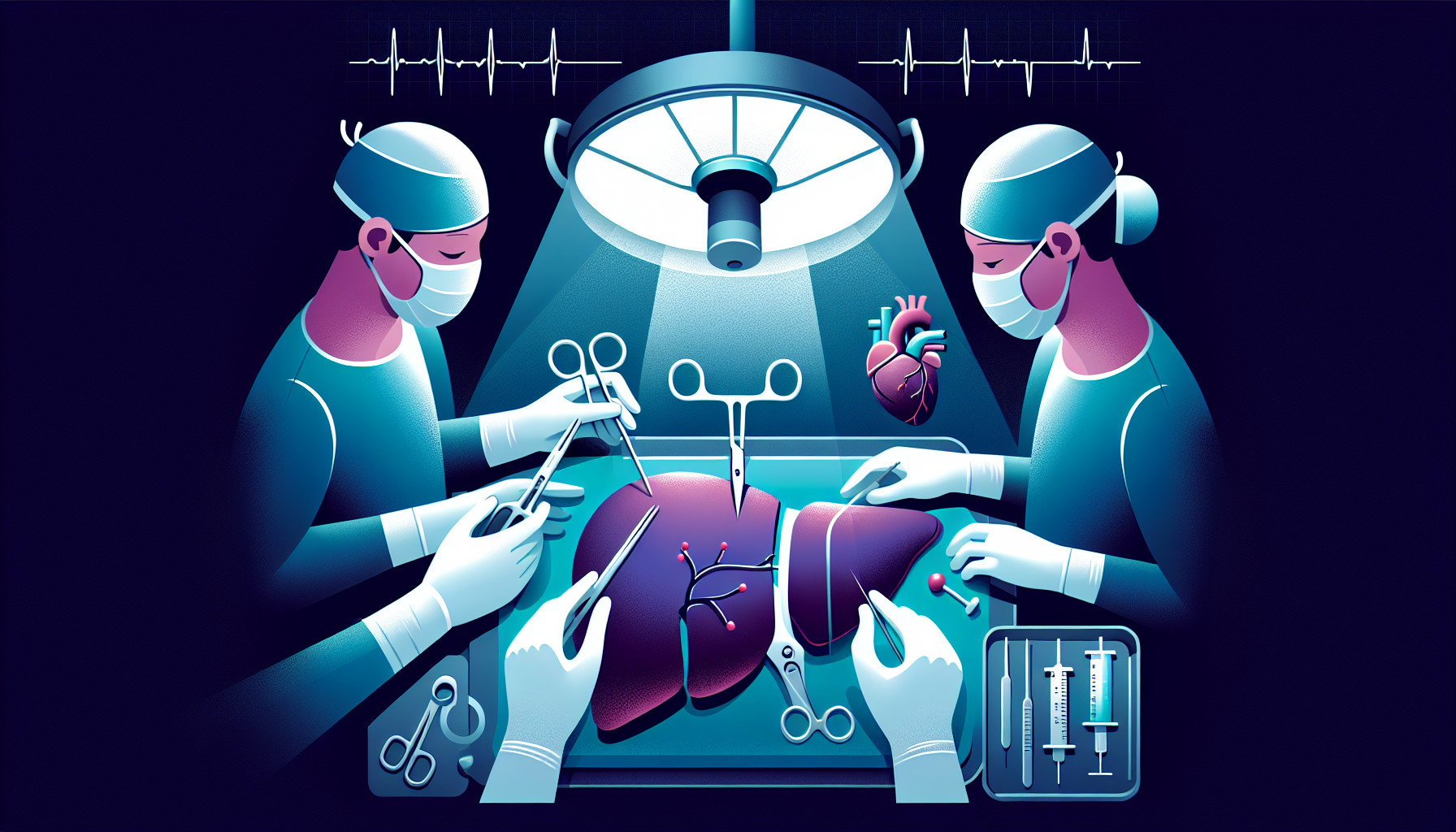Our Summary
This research paper is a review of the complications that can occur after someone has a liver transplant, which may result in them needing to visit the emergency department. Liver transplants are a common treatment for severe liver disease and there are almost 100,000 people in the US who are living with a transplanted liver. Because of this, it’s not just transplant centers that see these patients - they can present at any emergency department. The paper highlights that complications can be serious and might not always have obvious signs, so it’s vital for emergency doctors to be able to recognize and treat these. The exact type of treatment depends on the specific complication. The key takeaway is that all emergency doctors need to be prepared to handle these types of patients and the potential complications they may have.
FAQs
- What are the potential complications that can occur after a liver transplant?
- What is the importance of emergency doctors being able to recognize and treat liver transplant complications?
- How is the treatment determined for complications after a liver transplant?
Doctor’s Tip
A helpful tip a doctor might tell a patient about liver transplant is to closely follow the post-transplant care plan provided by their healthcare team. This may include taking medications as prescribed, attending follow-up appointments, maintaining a healthy lifestyle, and avoiding alcohol and certain medications that can harm the new liver. It’s important for patients to be proactive in their care to ensure the success of their transplant and overall health.
Suitable For
Patients who are typically recommended for a liver transplant are those with end-stage liver disease, also known as cirrhosis, due to various causes such as chronic hepatitis B or C, alcoholic liver disease, autoimmune hepatitis, primary biliary cirrhosis, primary sclerosing cholangitis, or nonalcoholic fatty liver disease. Patients with acute liver failure may also be candidates for a liver transplant.
In general, patients who are considered for a liver transplant have severe liver dysfunction that is not responsive to medical treatment and are at risk of death without a transplant. They may have symptoms such as jaundice, ascites (fluid buildup in the abdomen), hepatic encephalopathy (confusion or altered mental state due to liver failure), variceal bleeding (bleeding from enlarged veins in the esophagus or stomach), or hepatocellular carcinoma (liver cancer).
It is important to note that the criteria for liver transplant eligibility may vary depending on the transplant center and the specific circumstances of the patient. A comprehensive evaluation is typically done by a multidisciplinary team to assess the patient’s overall health, liver function, and potential risks and benefits of a liver transplant. Ultimately, the decision to recommend a liver transplant is based on the individual patient’s medical history, severity of liver disease, prognosis, and likelihood of successful transplantation.
Timeline
Before liver transplant:
- Patient is diagnosed with severe liver disease and is referred to a transplant center
- Patient undergoes extensive medical evaluations and tests to determine eligibility for a liver transplant
- Patient is placed on a waiting list for a suitable donor liver
- Patient undergoes surgery to receive a liver transplant
After liver transplant:
- Patient is closely monitored in the hospital for signs of rejection or complications
- Patient may experience side effects from immunosuppressant medications
- Patient is discharged from the hospital and continues to be monitored closely by their transplant team
- Patient may need to make lifestyle changes to support their new liver, such as following a strict diet and exercise regimen
- Patient may experience complications such as infection, rejection, or bile duct problems, which may require a visit to the emergency department
- Emergency doctors must be able to recognize and treat these complications promptly to ensure the best possible outcome for the patient.
What to Ask Your Doctor
- What are the potential risks and complications associated with a liver transplant?
- How long is the recovery process after a liver transplant and what can I expect during this time?
- What medications will I need to take after the transplant and what are the potential side effects?
- How often will I need to follow up with my transplant team after the surgery?
- Are there any lifestyle changes I should make post-transplant to ensure the success of the procedure?
- What signs or symptoms should I watch out for that may indicate a complication or rejection of the transplanted liver?
- How can I best prevent infections or other complications after the transplant?
- What is the long-term outlook for someone who has undergone a liver transplant?
- Are there any restrictions on activities or certain foods I should be aware of after the transplant?
- What support services are available for patients who have undergone a liver transplant, both during recovery and long-term care?
Reference
Authors: Sibai RE, Freedman SR, Gatz JD. Journal: J Emerg Med. 2023 May;64(5):596-609. doi: 10.1016/j.jemermed.2023.02.022. Epub 2023 Mar 6. PMID: 37197870
